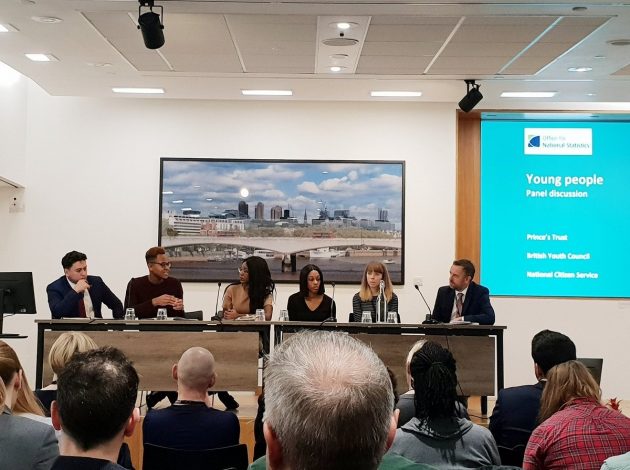This autumn ONS has released a series of articles exploring young people’s earnings, education and employment, culminating in a well-attended policy forum in London . ONS Communication Apprentice Florence Holmes discusses how this work resonates with her and provided an opportunity to compare her circumstances to others in the same age group.
As a young person, I often hear that young people today are having a tougher time than previous generations, but is this the reality? Are things really all doom and gloom? There are things to be positive about in terms of employment prospects and earnings. There are a record number of young people in work, and average weekly earnings are growing. However, there are also causes for concern, with 300,000 young people aged between 16-24 on zero hours contracts. There are also questions about the value of a degree at a time when the cost of going to university is so high. Our figures show that only 66.9% of people aged 25-34 working in jobs that matched their education level in 2015.
Rachel Lewis presenting on young people’s aspirations versus reality
On skills and education, more young people are studying for degrees than ever, with 1.4m under 30s studying for a degree in 2016/17. There are also increased opportunities for formal training and lifelong learning, with 16% of employed 22-29 year olds studying towards a qualification. On the flipside, young people’s career aspirations are not being matched by the reality, both in terms of the type of careers they go into, or the level of earnings they achieve. It raises the questions of whether more could be done to prepare young people for the reality of the job market, or the difficulty of entering the most desirable careers. There are also question marks over both the availability and quality of apprenticeships and other qualifications for young people.
The young people series highlighted positives and negatives about being 18 in 2018, that I had the opportunity to discuss at the ONS Forum on Young People and Intergenerational Fairness in London last week. I both attended the forum and featured on the new, all exciting young person’s panel. The panel was made up of five young people, with the purpose of providing some insight on what life is like for young people today, and how ONS’s statistics can help support and inform their choices.
We were asked a number of questions which resulted in some interesting discussions, most predominantly around education, housing and social media’s effect on mental health. Feedback from the event suggested how valuable a panel like this was for exploring the usefulness of existing ONS data on young people, and what, if anything, could be done in the future to improve our statistics.
Perhaps more questions were raised than answered, but the forum acted as a talking point. We have these statistics now how can we use them to make a real difference?
I think one of the main takeaways from this forum was that ONS are producing engaging, valuable and useful statistics on young people, yet these are not always being shared or communicated with those that would benefit most from them. Iain Bell, Deputy National Statistician, made the point that often statisticians speak to statisticians, but in this case we need statisticians speaking to people. This will ensure young people can make informed choices and decisions with the help of ONS statistics.
As we all know, statistics can sometimes be difficult to digest and understand. As a young person this is something that I agree with, and think that this is something commonly felt. ONS has a wealth of data which is undoubtedly helpful to young people, but if not communicated in a simpler, more accessible way, it is harder to reach the youth and show them that we have an abundance of data to help support them. Answers from the youth panel at the forum suggested we need to find a way to deliver these statistics to young people, and those that work closely with them, to ensure what statistics we produce can have the most positive impact possible.
What was clear at the forum was that ONS is helping to inform the debate about young people in the UK. However, there is still work to do in filling evidence gaps and making connections to provide an even better picture of what it’s like to be a young person in 2018.
Florence Holmes is a Communications Apprentice at ONS
